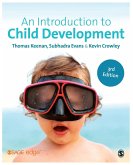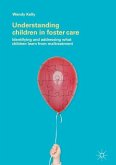Many parents delight in their child's imaginary companion as evidence of a lively imagination and creative mind. At the same time, parents sometimes wonder if the imaginary companion might be a sign that something is wrong. Does having a pretend friend mean that the child is in emotional distress? That he or she has difficulty communicating with other children? In this fascinating book, Marjorie Taylor provides an informed look at current thinking about pretend friends, dispelling many myths about them. In the past a child with an imaginary companion might have been considered peculiar, shy, or even troubled, but according to Taylor the reality is much more positive-and interesting. Not only are imaginary companions surprisingly common, the children who have them tend to be less shy than other children. They also are better able to focus their attention and to see things from another person's perspective. In addition to describing imaginary companions and the reasons children create them, Taylor discusses other aspects of children's fantasy lives, such as their belief in Santa, their dreams, and their uncertainty about the reality of TV characters. Adults who remember their own childhood pretend friends will be interested in the chapter on the relationship between imaginary companions in childhood and adult forms of fantasy. Taylor also addresses practical concerns, providing many useful suggestions for parents. For example, she describes how children often express their own feelings by attributing them to their imaginary companion. If you have a child who creates imaginary creatures, or if you work with pre-schoolers, you will find this book very helpful in understanding the roles that imaginary companions play in children's emotional lives.
Hinweis: Dieser Artikel kann nur an eine deutsche Lieferadresse ausgeliefert werden.
Hinweis: Dieser Artikel kann nur an eine deutsche Lieferadresse ausgeliefert werden.








